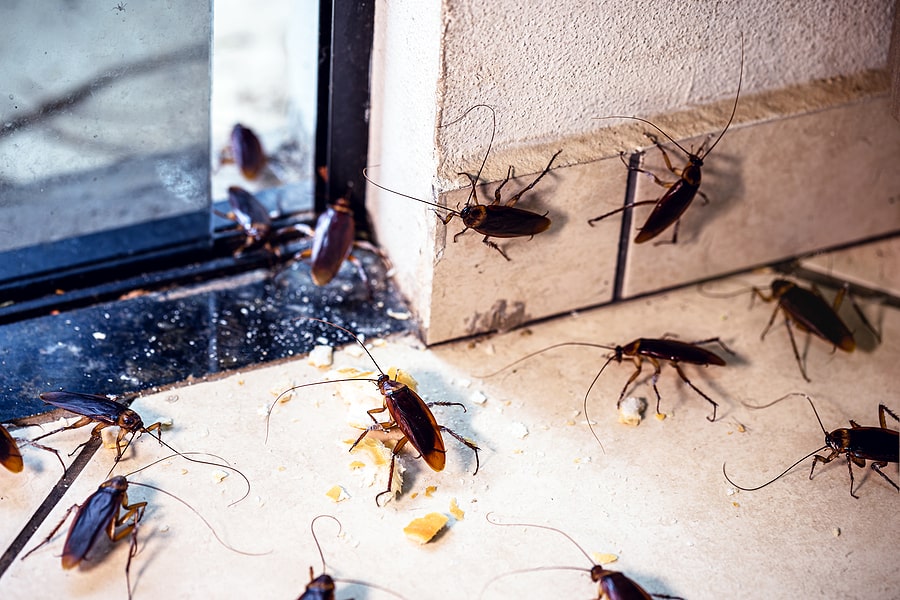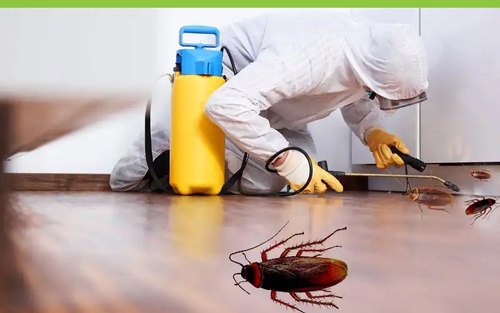Professional Roach Control Near Me: Say Goodbye to Roaches Today
Professional Roach Control Near Me: Say Goodbye to Roaches Today
Blog Article
Exploring Various Insect Control Methods to Attain Long-Term Success in Handling and Stopping Problems in Residential Areas
Reliable insect control in residential locations demands a diverse approach that balances immediate outcomes with long-lasting sustainability. What might these innovations require, and how can they change our understanding of pest control?
Understanding Bug Control Methods
Although insects have actually existed together with human beings for centuries, the methods employed to manage them have advanced considerably with time. Understanding these methods is critical for successfully managing and avoiding invasions in suburbs. Insect control strategies can be extensively classified into three key methods: cultural, mechanical, and chemical.
Social techniques focus on altering the atmosphere to minimize parasite destination and breeding. This consists of proper sanitation, crop rotation, and environment alteration, which can substantially decrease pest populaces. Mechanical control involves physical obstacles and catches to handle parasites directly, such as displays, vacuums, and sticky catches. This method is frequently preferred for its non-toxic nature and instant outcomes.
Chemical control continues to be among one of the most widely made use of methods, entailing the application of pesticides to remove pests. While efficient, this approach requires careful factor to consider of security, potential resistance development, and ecological influence. Integrated Bug Monitoring (IPM) incorporates these approaches to create an alternative approach, advertising long-lasting insect avoidance and minimal injury to beneficial microorganisms. By understanding these different pest control methods, homeowners can make educated decisions that promote reliable monitoring and preservation of their space.
Eco-Friendly Parasite Control Solutions
How can home owners successfully manage pest issues while decreasing their ecological impact? Environment-friendly parasite control solutions offer a lasting alternative to conventional approaches, prioritizing the health and wellness of both locals and the bordering environment. These services often use natural active ingredients and techniques that interrupt insect habits without presenting hazardous chemicals right into the atmosphere.
One reliable technique is using useful insects, such as ladybugs and lacewings, which victimize typical pests like aphids and termites. In addition, diatomaceous earth, an all-natural powder made from fossilized algae, can be sprayed in areas where pests are widespread, working as a desiccant that damages insects while staying secure for people and animals.
Furthermore, implementing precautionary procedures is crucial. roach control near me. Property owners can make sure proper hygiene by securing entrance points, preserving clean living spaces, and handling waste effectively. Growing pest-repellent herbs, such as mint and basil, can also discourage undesirable visitors
Inevitably, environment-friendly parasite control services encourage property owners to attend to infestations sensibly, fostering a much safer living environment while promoting environmental equilibrium. By accepting these methods, people can add to a healthier earth while efficiently handling pest-related concerns.
Chemical Bug Control Options
While environment-friendly options are increasingly preferred, there are circumstances where chemical bug control alternatives might be required for efficient monitoring of serious problems. Chemical controls, including pesticides, fungicides, and herbicides, are frequently used to swiftly decrease parasite populaces and mitigate damage to homes and gardens.
These products can be categorized into 2 major classifications: synthetic chemicals and all-natural chemicals. Synthetic chemicals, such as pyrethroids and neonicotinoids, are engineered to target details pests, providing fast knockdown impacts. Alternatively, all-natural chemicals, acquired from plant or browse around this site mineral resources, might offer a much more eco-friendly choice while still delivering effective results.
Before using chemical pest control, it is important to perform a detailed analysis of the problem and determine the details parasite included. This guarantees that the selected chemical is both effective and appropriate. Additionally, homeowners must abide by safety and security standards, consisting of proper application techniques and individual safety devices, to minimize health and wellness dangers and ecological influence.
Integrated Insect Management Techniques

Biological control includes the usage of natural predators or bloodsuckers to manage parasite populations. Physical controls, like traps or barriers, can protect against pests from getting in homes or harmful plants.
Monitoring and assessment are crucial components of article IPM, permitting timely treatments based upon pest population thresholds. By prioritizing safety nets and utilizing a mix of methods, IPM not only addresses present problems yet also promotes lasting parasite monitoring solutions that safeguard both human health and the setting. This detailed technique is important for sustainable insect control in suburbs.
Arising Technologies in Pest Control
The introduction of emerging innovations in parasite control is transforming the method we manage pest populations, offering cutting-edge solutions that improve efficiency and performance. Breakthroughs in accuracy agriculture, for example, use data analytics and sensor technologies to monitor pest activity and ecological problems, enabling targeted interventions that minimize chemical usage.
In addition, drones outfitted with imaging innovation are being employed to evaluate huge locations for problems, giving real-time information that aids in prompt decision-making. Biotechnology is playing an essential role, with the growth of genetically customized organisms (GMOs) created to decrease pest populaces while preserving beneficial types. roach control near me.

Finally, clever catches and keeping an eye on gadgets equipped with IoT abilities allow home owners and pest control professionals to get instantaneous alerts about insect activity, facilitating punctual activity. Jointly, these emerging innovations not only enhance bug administration results yet additionally add to ecological sustainability by minimizing reliance on traditional chemical therapies.

Final Thought
To conclude, efficient parasite control necessitates a complex strategy that integrates cultural, mechanical, and chemical strategies. Stressing eco-friendly solutions and Integrated Parasite Administration can result in lasting methods that not only reduce infestations yet likewise enhance the eco-friendly equilibrium within household locations. By welcoming cutting-edge modern technologies and embracing safety nets, homeowners can foster healthier settings while decreasing reliance on unsafe chemicals. The combination of these methods is essential for attaining long-lasting success in bug administration.
Report this page